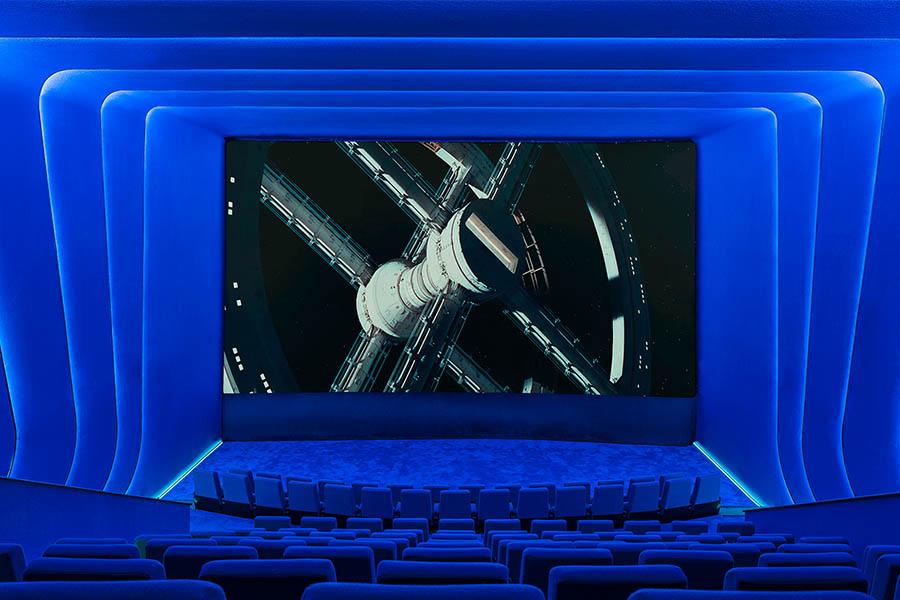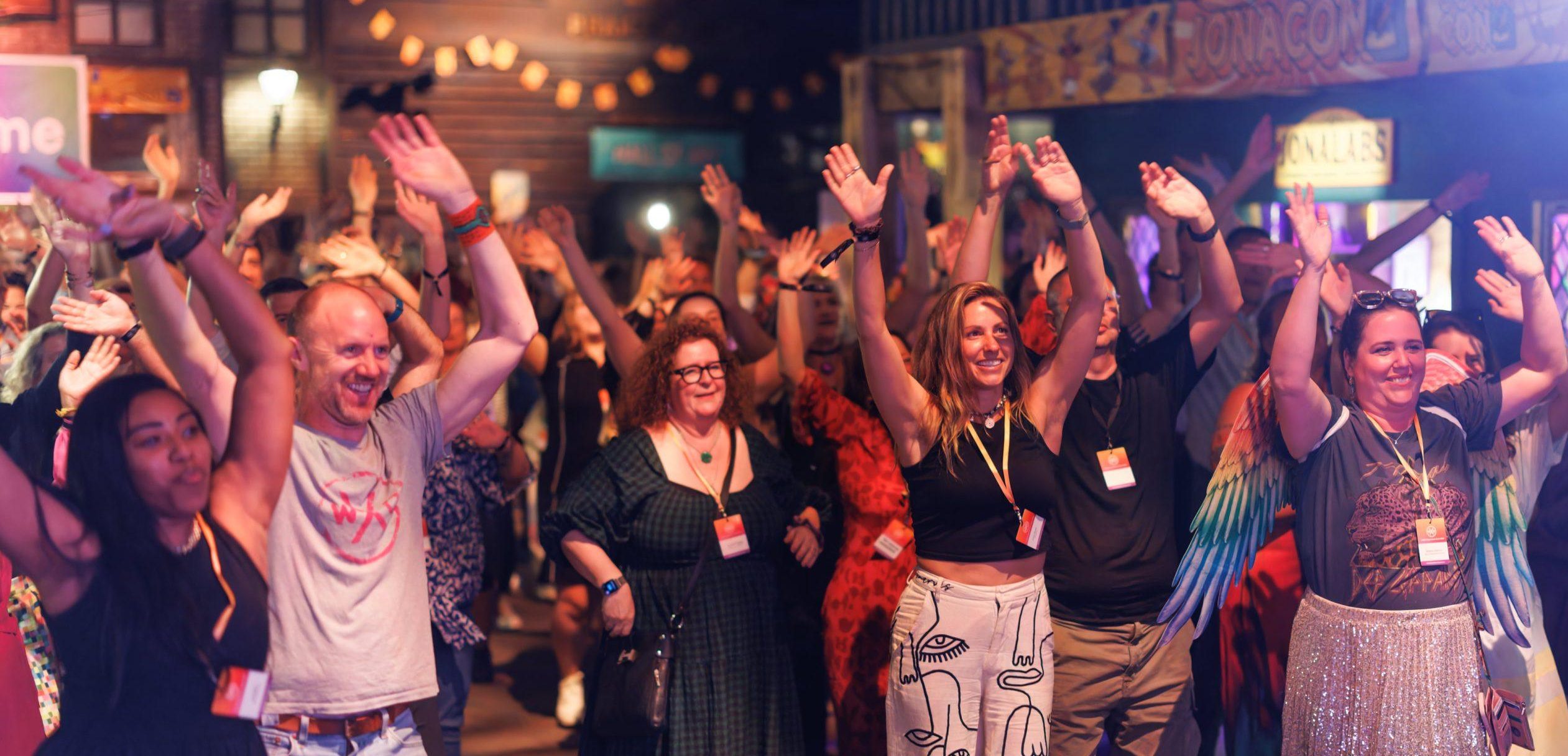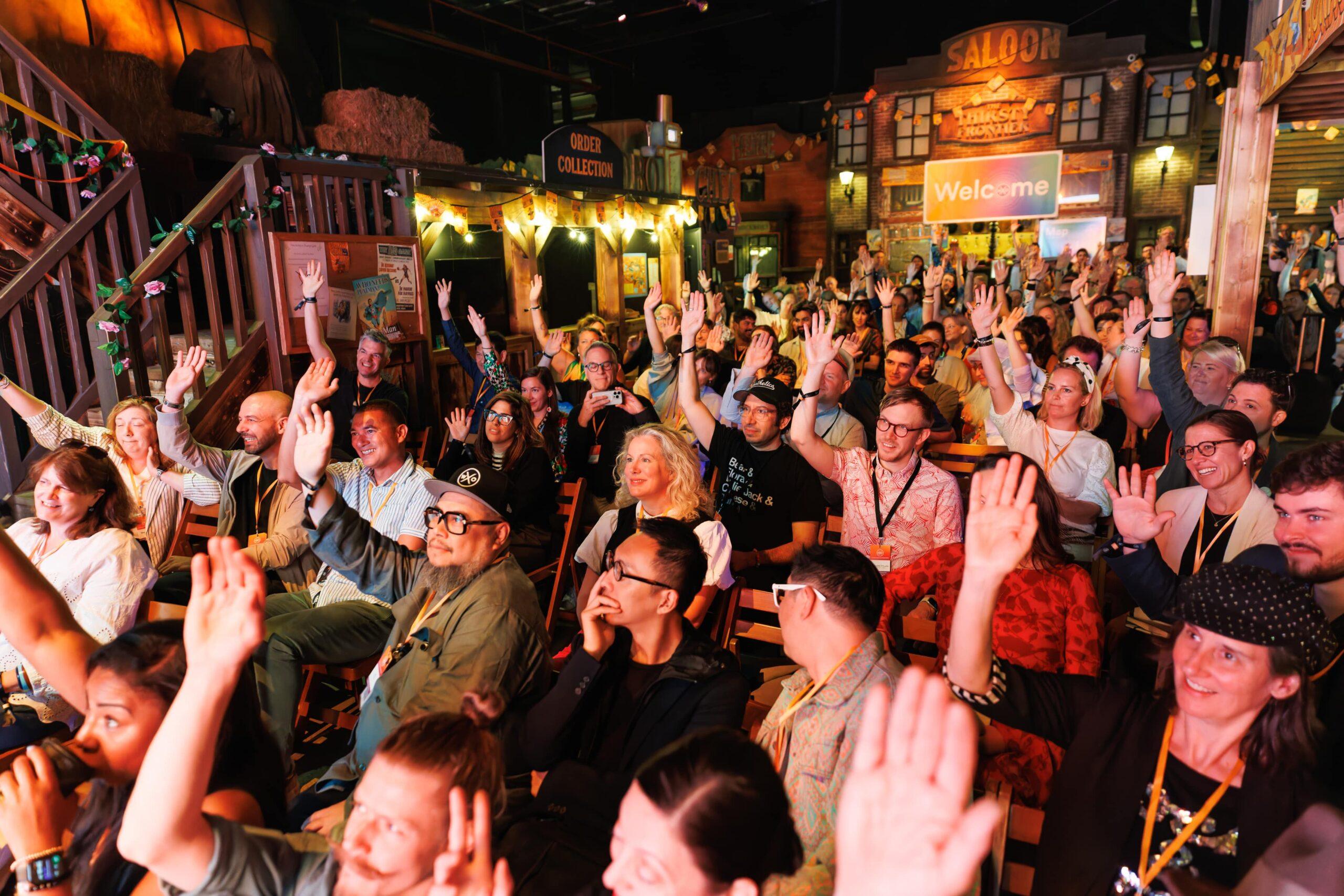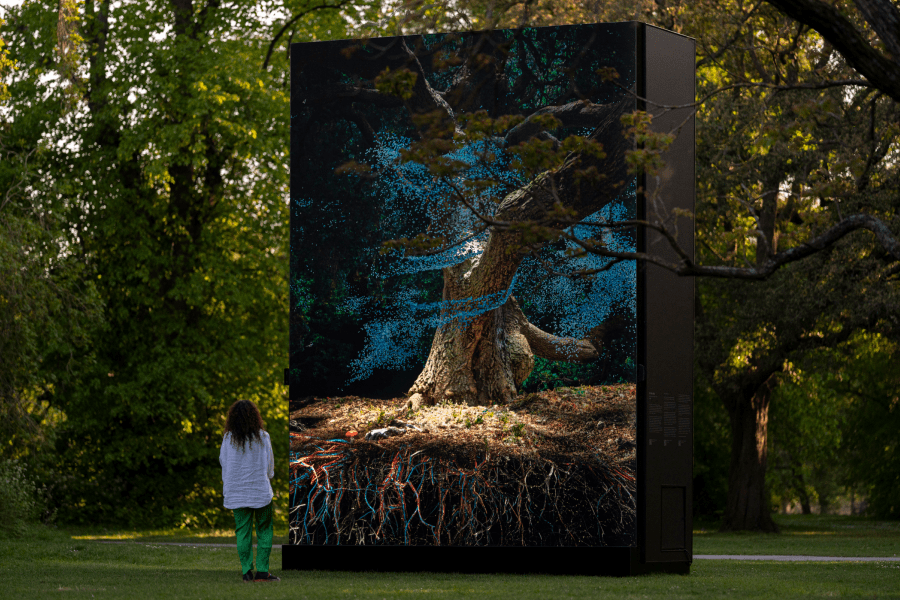We want to connect the dots across the Experience Economy and across the globe – so each month, we’ll be bringing you our round-up of the experiential stories that we think reveal something interesting, relevant or transferrable about the Experience Economy.
Welcome to the latest Experience Radar, where we’re burning rubber at the Formula 1 experience at Immerse LDN, being taken on a dreamlike VR journey by a Swiss watchmaker, and getting the lowdown on just how epic Universal’s latest Orlando theme park will be.
1. London Gets New Immersive Mecca

Proving just how powerful immersive entertainment has become, the UK’s largest immersive entertainment district – Immerse LDN – has just opened at ExCeL London in the Royal Docks. Stage one of the 160,000 square foot space has launched with two big-gun experiences: The Friends Experience and Formula 1: The Exhibition, alongside tasty morsels from street food collective KERB London. The long-awaited waterfront venue will feature some of the biggest names in TV, film, music, art and gaming, and will play host to world-class immersive experiences and original productions in multiple purpose-built spaces. Later this year and in 2025, Immerse LDN will continue to expand and open new phases.
The third edition of the World Experience Summit will also be making a cameo there next spring. “We want to create a space where guests can enjoy the very best of immersive and experiential entertainment in one place. It will be one of the most connected entertainment districts in the world,” said Damian Norman, director of immersive entertainment at ExCeL London. Immerse LDN is part of a £300m investment programme into ExCeL’s venue campus and the wider Royal Docks regeneration plan, and is set to bring an additional 2.5 million visitors to the area each year and provide hundreds of new jobs.
2. Dubai To Build New York-Style High Line
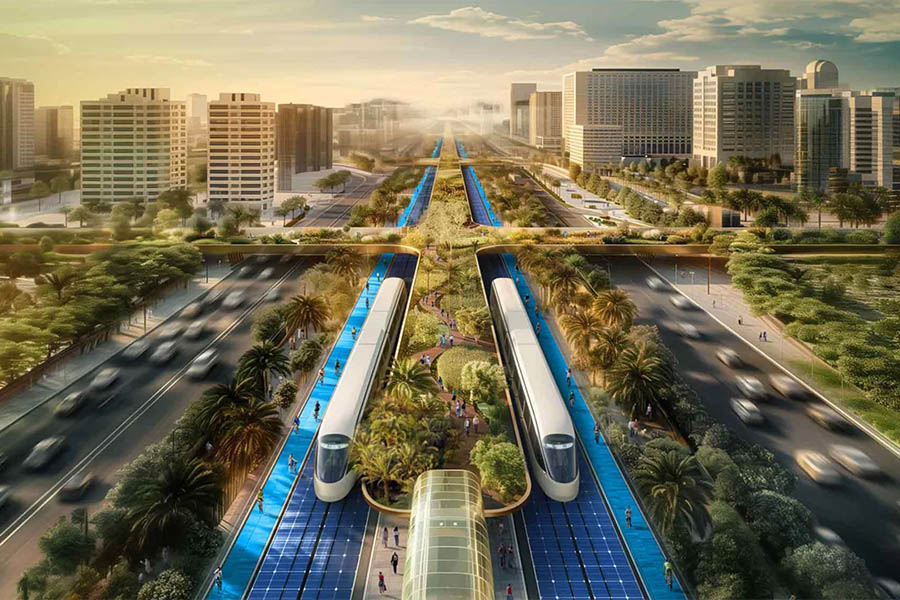
The urban jungle that is Dubai is seeking to create a more clean and green environment for its inhabitants via the building of a 40 mile-long lush urban corridor inspired by New York’s High Line, featuring over a million trees. The Dubai Green Spine is part of the Dubai 2040 Urban Master Plan and will seek to turn the city’s main traffic artery – the Sheikh Mohammed Bin Zayed Road – into a sustainable corridor populated with plants, trees including date palms, and multifunctional public spaces. The ambitious project is being masterminded by UAE-based firm Urb, a developer of Net Zero sustainable cities.
The Green Spine is set to be powered by a large solar panel farm located inside the structure, which will also power tens of thousands of homes in the surrounding area. In addition to reducing CO2 emissions and lowering Dubai’s carbon footprint, one of the main aims of the project is to encourage residents to leave their cars at home and either walk or use bikes to travel to work or during their downtime. “It challenges conventional infrastructure norms, proving that our streets can do more than facilitate car traffic; they can significantly enhance quality of life,” Urb CEO Baharash Bagherian told Fast Company. Which city will be next?
3. How Tech Is Creating Life After Death
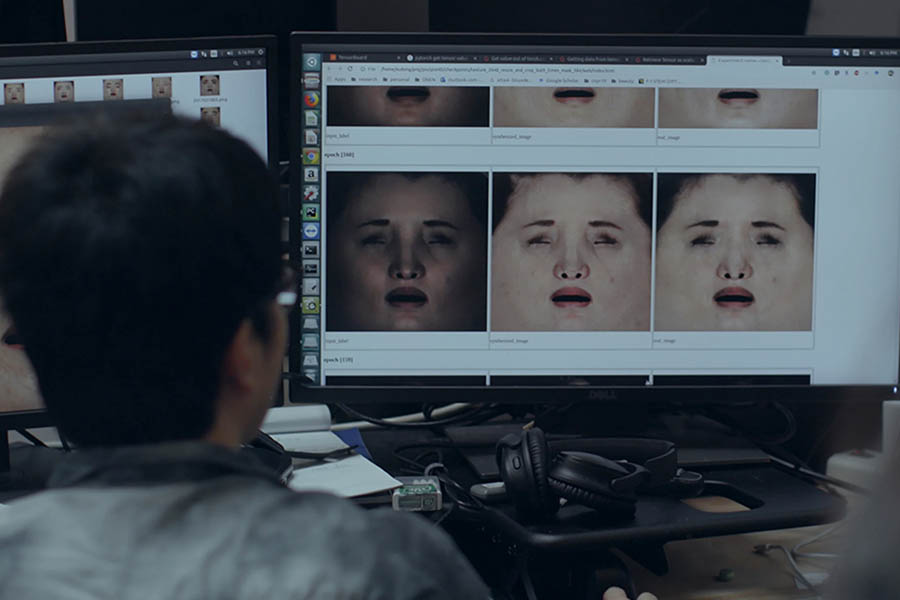
AI is being harnessed to help those in grief to connect to loved ones from beyond the grave. As reported by VML, in 2021 Microsoft secured a patent for recreating specific people, including the deceased, in the form of interactive avatars, while Chinese AI firm Super Brain allows people to create avatars of the dead for 20 yuan (around $3) with a little help from audiovisual material provided by the user. Since it launched last summer the firm has helped “thousands” of Chinese people to digitally revive people who have died. In the US, tech start-up Hereafter.ai helps those in mourning to talk to lost loved ones, with those willing to take part recording voice notes including childhood stories and how they’d like to be remembered.
According to MIT Technology Review, at least six start-ups in China offer people the chance to interact with dead family and friends via AI. While they may provide solace during a time of grief, the premise is an ethical minefield if done without the deceased’s consent. If the trend catches on, it will lead to the lines between real life and simulated life becoming increasingly blurred and difficult to decipher; a theme explored in the film Eternal You, which premiered at this year’s Sundance Film Festival. While designed to help those in mourning, the long-term impacts of these so-called ‘griefbots’ on the grieving process and our ability to accept the loss of loved ones remains unknown, and they could end up doing more harm than good.
4. Gen Z Is Driving Passion Travel Trend

From the rise of ‘dark’ tourism and extreme travel to tailoring a trip around a specific sporting event or psychedelic retreat, the travel industry has come a long way in a short space of time. The latest trend among Gen Z, according to Thrillist, is for ‘passion’ travel fuelled by hobbies, which is “fundamentally reshaping our views of tourism and the role travel plays in our lives”. The publication partnered with The Circus, an insights and data storytelling consultancy, to survey 2,000 adults aged 18 to 75. It found that a shift in priorities promises to usher in a new era of passion-led travel where self-exploration is an important part of the itinerary.
The survey found that for 72% of Gen Zers and Millennials, travelling is core to their identity and part of how they express themselves, while 77% choose travel experiences based on their personal interests, not the destination, with a high proportion seeking experiences that chime with their beliefs and help to strengthen their bonds with different cultures and communities. Happy to splash their cash on hobby-led trips, from festivals and wellness retreats to eco-led getaways, Gen Z want to experience off the beaten track destinations where the inward journey and personal transformation that comes with it is as important as the location itself. The goal is not only to expand their horizons but to grow from what they have experienced.
5. Retail Embraces Multi-Sensory Storytelling
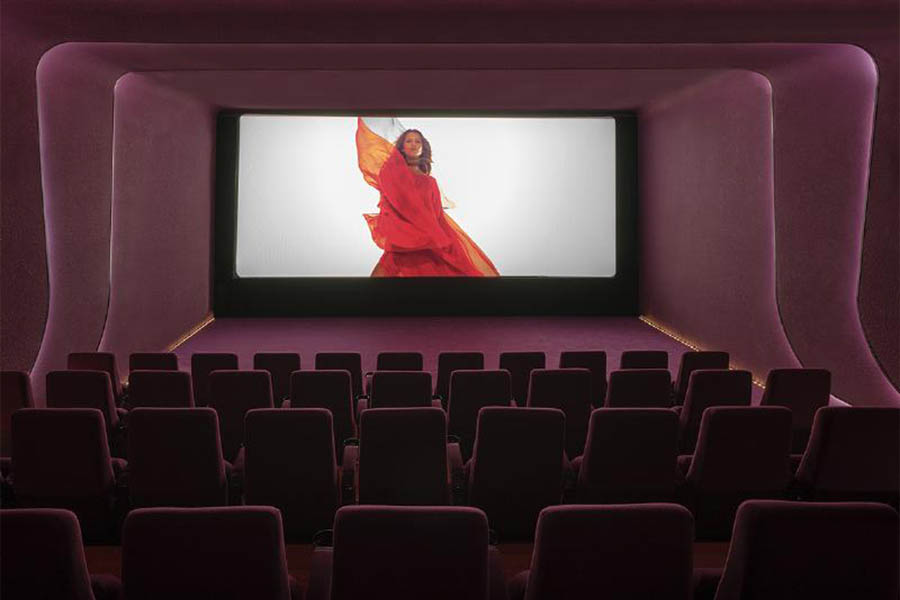
With retailers increasingly competing with experiences for consumer spend, the need to engage their customers and embrace storytelling has never been higher. Helping them in their quest is VR tech, which is being harnessed by the likes of luxury retailer Harrods to great effect. A multi-person VR cinema experience called xydrobe has launched at the London department store, drawing shoppers into the creative world of brands via multi-sensory storytelling. To coincide with the launch, Harrods is hosting a series of short films in partnership with various luxury brands, inviting shoppers to discover different brand narratives in a novel way.
The VR cinema experience is an evolution of xydrobe’s original ‘pod’ format launched in 2023, formed of evocative private spaces entered solo. To scale up, xydrobe enlisted the help of the architectural studio Sybarite, which created a 20-seater cinema space boasting a 50 square meter gallery for physical exhibits. To build anticipation, shoppers enter the cinema via a dark “cocooning tunnel” designed to offer “solace, reflection and relaxation” according to Simon Mitchell, co-founder of Sybarite. To heighten the multi-sensory nature of the cinema experience, the theatre is equipped with the latest in 4D immersive tech, including surround sound, scent, and in-seat tactile sensations that mimic wind and temperature changes.
Among the VR films at Harrods is The Exceptional Voyage by Swiss watchmaker Vacheron Constantin, which takes viewers on a dreamlike journey that takes in real-life locations such as the Harrods safety-deposit room and imaginary places including far-flung galaxies. The goal of the tech is to attract a younger generation of shoppers to high-end brands, and to move the shopping experience beyond the transactional towards it being an “emotion-led journey of discovery” to deliver “true escapism in retail”. In a crowded market, brands need to deliver impactful moments that help consumers to connect with a brand on an emotional level in order to stand out and be remembered, and VR experiences might just hold the key.
6. Universal’s Epic Universe Lives Up To Name
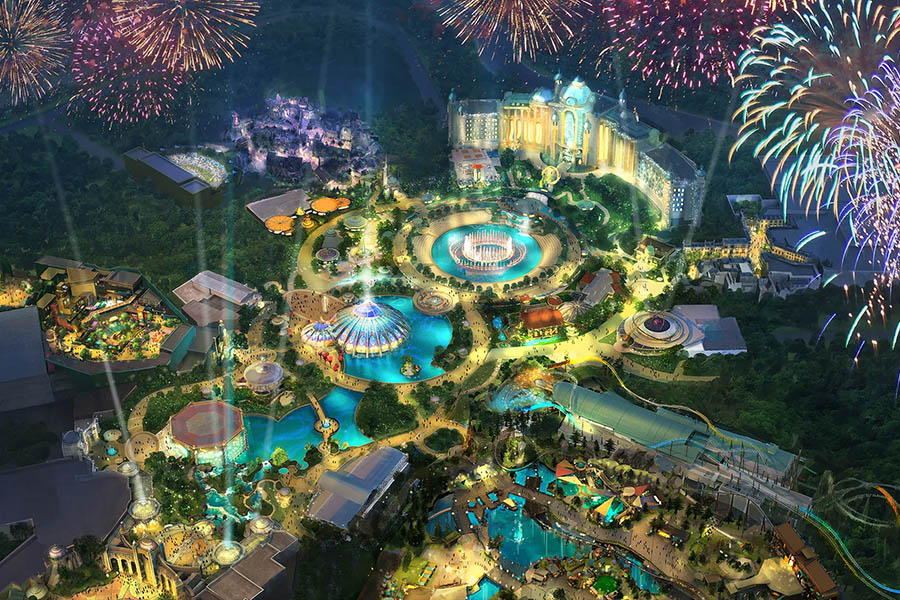
If the teasers are anything to go by, Universal Orlando‘s fourth theme park – Epic Universe – lives up to its name. The park, which is due to open next year, will be double the size of Universal Orlando Resort and will feature 50 attraction, entertainment, dining and shopping experiences. At its heart will be Celestial Park, a central shopping, dining and attraction that will offer portals to four themed lands. A destination in itself, Celestial Park will feature architecture inspired by astronomical and mythological elements, lush gardens, fountain shows and state-of-the-art lighting effects. The Helios Grand Hotel overlooking Celestial Park will boast 500 rooms for those keen to sleep on site.
Set to be Universal’s most immersive theme park yet, Epic Universe will also include the Harry Potter-themed Ministry of Magic, which will have the same 1920s French flair as the Fantastic Beasts films. The land features a travelling circus of acrobats and puppeteers, café and shopping district Plan Cachée, and a cart selling butter beer. At lead ride Harry Potter and the Battle at the Ministry you’ll witness the trial of Dolores Umbridge in magical, omnidirectional lifts. At Dark Universe, meanwhile, there will be cameos from the likes of Dracula, The Wolf Man, The Mummy and The Creature from the Black Lagoon at Monsters Unchained: The Frankenstein Experiment, where chilling creatures are unleashed on guests.
7. Video Game Museum To Open In Japan
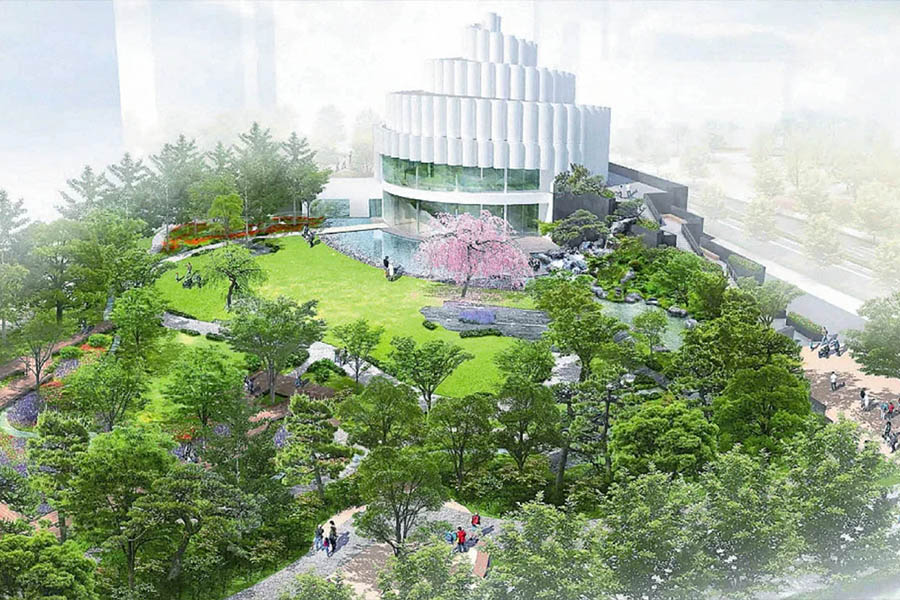
In an interesting meeting of minds, Japan’s largest home builder, Daiwa House, is in the process of creating a video game museum in Yokohama’s Nishi-ku ward in collaboration with Japanese real estate developer Koyu. The new Game Art Museum will be half an hour south of downtown Tokyo and will feature exhibits, immersive experiences and a 3,000-square-metre art garden. Construction on the attraction started in February, with completion scheduled for May 2027, and an opening expected later in summer 2027.
Daiwa House said the museum will be a space for gamers from all over the globe, who will be able to explore exhibits on character designs, visuals and sound in video games. The exterior of the museum is spiralled in shape, while the garden will be home to seasonal plants and gaming-inspired projection experiences. Real estate developer Koyu is the largest stakeholder in Koei Tecmo, the firm behind video games such as Dynasty Warriors, Nioh, Nobunaga’s Ambition, Romance of the Three Kingdoms, and Dead or Alive. If you can’t wait until 2027, you can get your gaming fix at Nintento’s new museum in Kyoto, which is due to open this autumn.

